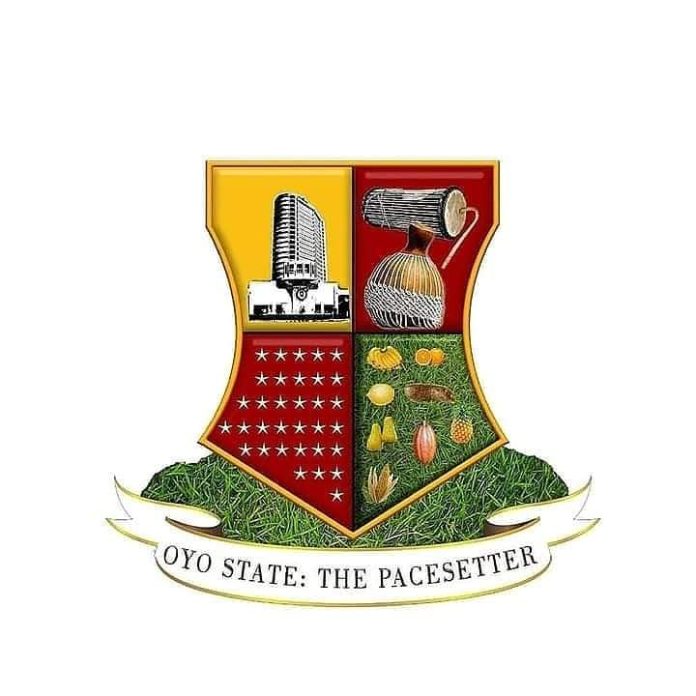…why Oyo recorded best inflation rates- Makinde’s Economic Adviser
Statistics released by the National Bureau of Statistics (NBS) for February 2021 have shown that Oyo State’s month-on-month as well as year-on-year inflation figures were the slowest in the country within the time under review.
Data made available by the NBS in February indicated that the inflation rate rose to 17.33 per cent (year-on-year); 1.54 percent rise month-on-month above the January 2021, while urban rate increased by 17.92 percent (year-on-year) in February 2021 from 17.03 percent recorded in January.
However, the NBS report indicated that price increase remained the slowest in Oyo at all levels, with the Economic Adviser to Governor ‘Seyi Makinde, Professor Musbau ‘Tunji Babatunde, stating that the effective management of the state’s economy by the governor were responsible for the development.
A statement by the Chief Press Secretary to the governor, Mr. Taiwo Adisa, quoted Prof. Babatunde as saying that Oyo State was able to record the slowest growth in headline inflation and food inflation month-on-month and year-on-year because of the sound economic policies of the Governor Makinde administration.
He pointed out that the regular payment of salaries, which according to him, increased effective demand in the food system, support to farmers with inputs at the height of the pandemic and the expansionary fiscal policy from the various capital projects embarked on by the state were among factors responsible for the slow inflation increase.
According to Babatunde, a professor of Economics at the University of Ibadan, the NBS Data had indicated that “the consumer price index, at the national level, (CPI) which measures inflation, increased by 17.33% (year-on-year) in February 2021. This is 0.86% higher than the rate recorded in January 2021 (16.47) %.
“On a month-on-month basis, the Headline index increased by 1.54% in February 2021, this is 0.05% rate higher than the rate recorded in January 2021 (1.49%).
“The urban inflation rate increased by 17.92% (year-on-year) in February 2021 from 17.03 % recorded in January 2021, while the rural inflation rate increased by 16.77 % in February 2021 from 15.92% in January 2021.
“The upward increase in inflation can be attributed to the lingering effect of the COVID-19 pandemic, fluctuations in the price of crude oil, weakened Naira that has increased the price of imported input, insecurity in the food producing parts of Northern Nigeria, the food blockade during the Shasa riot, among others.
He added:
“The components of inflation that witnessed surges in the review period are food, health care, imported food and transportation.
“However, food price is the main component of the inflation basket. It rose to 21.79% in February, a jump of 1.22 % point from the January figure.
“This rise in the food index was caused by increases in prices of Bread and cereals, Potatoes, yam and other tubers, Meat, Food products, Fruits, Vegetable, Fish and Oils and fats.”
Further analysis of the performances of the state had shown that on month on month basis in February 2021 all items inflation was highest in Kogi (3.25%), Ondo (2.46%) and Kebbi (2.43%), while Kwara (0.84%), Kano (0.70%), while that of Oyo stood at (0.38%), the slowest rise in headline month on month.
On month on month basis, however, February 2021 food inflation was highest in Kogi (3.34%), Ondo (3.33%) and Ebonyi (3.26%), while Benue and Niger (0.90%), Kano (0.70%), oyo again recorded (0.09%), the slowest rise in month on month food inflation.
Babatunde, who explained that the implication of the slowest rise in headline and food inflation in Oyo State meant that the state has the lowest cost of living in Nigeria, said that the cost of health care services in Oyo State has not risen due to the strategic investment that the state has made in the management of COVID-19 pandemic.
He said: “The conversion of isolation centres to Level 3 primary health care centres has improved access to health care services. “The effects of the strategic investment in the health sector by the State has manifested in the stable service cost.
“Transportation cost has also been stable in the State despite the fluctuation in domestic price of petroleum products. The positive effect of the Park Manager System with respect to managing the commercial transport sector is showing positive with respect to the regulation of transportation costs across the routes.
“So, one can say that there is good value for money can be obtained in Oyo State.”
He further said that the positive inflation figures recorded in Oyo State in headline and food inflation month on month across the 36 States can be attributed to the regular payment of salary, which has increased effective demand in the state.
He said that the regular payment of salary in the State has improved demand.
“Similarly, the effective support to farmers with inputs at the height of the COVID-19 pandemic has paid off. The strategy of supporting farmers with inputs impacted positively on their output level which has been translated to the moderation in price increase of agric. output.
“Also, the effective distribution of the COVID-19 palliatives to different categories of people in the state moderated the demand for those goods that were distributed in December 2020.
“More so, the expansionary fiscal policy from the various capital projects embarked on by the State also had impacts. The contractors have employed a sizable number of artisans across the geopolitical zones in the State. This has created both direct and indirect jobs.”
Babatunde added that the effective management of the government deficit structure and the use of alternative infrastructural financing framework have also allowed the government to simultaneously embark on welfare enhancing projects, a factor which, according to him, also contributed to the slow inflation growth.
He further stated that the ongoing construction of the Moniya-Iseyin road has also enhanced the movement of agricultural goods to the main city and has reduced farm-gate losses, which he said, has also improved the supply of agricultural goods.
“The merit driven staff recruitment across the educational, health and environmental sectors of the State have boosted household confidence about the activities of Government given the economic opportunities available to the newly employed candidates.
“Low interest fund support to SMEs to cushion the impact of COVID-19 pandemic that is being coordinated by OYSIPA has enhanced the business framework in the State. It has enhanced the business performance of the beneficiaries with feedback to the Oyo State economy.
“In conclusion, effective economic management has been very supportive of the low headline and food inflation being witnessed in the state,” the Prof. added.
Signed
Taiwo Adisa
Chief Press Secretary to Governor Seyi Makinde
March








